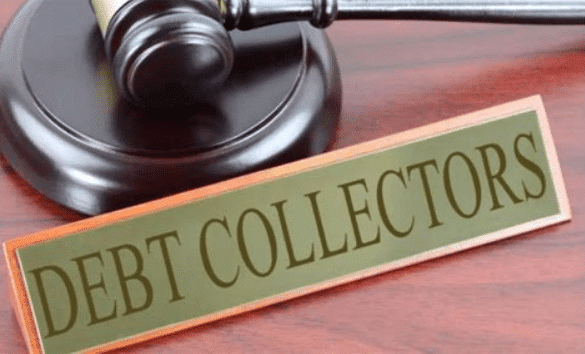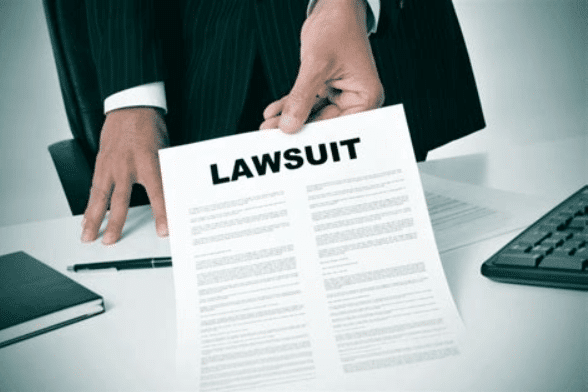You’ve been sued by Waypoint Resource Group. What will you do now? Never fear, ZumaZip.com is here to help you WIN!
Debt collection lawsuits often come by surprise. You’re caught totally unaware, and now you find yourself in the middle of a lawsuit. You have no idea how to proceed. After all, you don’t know what to do when sued by Waypoint Resource Group.
Don’t panic! Contrary to popular belief, you don’t need a lawyer for a debt collection lawsuit. If you choose to represent yourself though, you’ll have your work cut out for you.
ZumaZip is here to help. If you’re the victim of a Waypoint Resource Group debt collection lawsuit, we have the resources you need to help win your case.
Who is Waypoint Resource Group?
Waypoint Resource Group is a third-party debt collector. That’s a fancy way of saying that they chase down money for other people. Likely, you’ve never heard of Waypoint Resource Group before. You never borrowed any money from them. Why are they coming after you?
There are two possible reasons. First, the original lender hired Waypoint Resource Group to collect the debt. Waypoint Resource Group gets a commission from the original lender if they succeed.
Second, Waypoint Resource Group may have bought your debt outright. As a collection agency, the company can buy debt from its original lender at a huge discount. We’re talking pennies on the dollar. This means that the debt isn’t a total loss for the original lender. Additionally, since Waypoint Resource Group bought the debt at such a discounted rate, they can make a significant profit.
Respond to debt collection agencies in minutes with ZumaZip.
What Can You Do When You’re Being Sued By Waypoint Resource Group?
All debt collection lawsuits have some common language and procedures. To defend yourself, you’ll need to brush up on some of your basic “legalese.”
- Creditor – The party that owns the debt. Also called the plaintiff.
- Debtor – The party that owes money. Also known as the defendant.
In this case, Waypoint Resource Group is the creditor. That makes you the defendant.
Debt Collection Lawsuits: the Breakdown
If Waypoint Resource Group is suing you, it’s time to act. Every debt collection lawsuit starts with one document: the Complaint. If you’ve already received the Complaint, the clock is already ticking. In most jurisdictions, you must reply within 14-30 days.
In the Complaint, Waypoint Resource Group will tell you how much money you owe. They should also submit documents showing the ownership of the debt, giving them the right to collect it.
You’ll need to read the Complaint and draft a reply stating why you don’t owe them the money in question.
Use ZumaZip to respond to a complaint fast.
Crafting Your Answer
Wondering how to respond to a Complaint? It can be a little tricky. You need to file a document called an “Answer” with the court. This document will outline your defenses (the reasons you’re not responsible for the debt).
Acceptable defenses include:
- Incorrect loan amount – Third-party debt collectors like Waypoint Resource Group often have incomplete debt records. Double-check the amount of debt listed in the Complaint and compare it to your numbers. You may have made payments that Waypoint Resource Group didn’t include.
- Lack of proof – Waypoint Resource Group needs to show the court that you owe them money. This task requires them to establish a paper trail linking you to their debt. They’ll need to present several documents, like your original loan agreement. They also need to show that they can legally pursue your debt. That means either buying your debt from its original owner or collecting it on their behalf.
- Expired timeframe – Each state has laws governing “statute of limitation.” The statute of limitations acts as an expiration date for court cases. If Waypoint Resource Group filed your case after the statute of limitations expired, the case is invalid. In most jurisdictions, the statute of limitations for debt collection cases are 2-4 years.
Don’t bother trying to make excuses in your Answer – they won’t work. The court isn’t interested in why you can’t pay your debt. They’re just here to decide if you owe it in the first place.
File an Answer with ZumaZip and win.
Possible Outcomes
What’s the best possible outcome of a debt collection lawsuit? You win, of course! If Waypoint Resource Group fails to prove that you owe the debt, the court will rule in your favor.
But if you lose, Waypoint Resource Group has an arsenal of debt-collecting weapons at their disposal. Their two mainstays are court orders called garnishments and liens. These tools help them extract money from debtors.
- Garnishment – Officially known as a “Writ of Garnishment.” This court order allows a plaintiff to take money directly from a defendant’s income. That income may be a paycheck, capital gains, alimony, child support – anything, really. A garnishment continues until the debt has been paid in full, plus interest.
- Liens – A lien is a claim to a piece of the defendant’s property. It can be anything from real estate to cars and heavy equipment. A lien requires the defendant to pay any money that they make from selling that property towards repayment of their debt. For example, if someone places a lien on your house, you can’t receive money from selling it before paying off your debt.
Both liens and garnishments are a serious threat to your wealth. They can financially cripple a defendant for years until their debt is finally paid. The best way to avoid these outcomes? Make sure you Answer Waypoint Resource Groups’ Complaint!
What is ZumaZip?
ZumaZip is a convenient solution designed to streamline your response to a debt collection lawsuit. Here’s a breakdown of what you can expect when you use ZumaZip:
Firstly, you’ll access our user-friendly web application, which guides you through the process step by step. You’ll be prompted to answer a series of questions related to your specific situation. Once you’ve completed the questionnaire, you have the option to either print out the finalized forms and mail them to the appropriate courts yourself, or you can opt to utilize ZumaZip’s services to file them on your behalf. Additionally, if you choose this option, an attorney will review your document for added peace of mind.
If you’re seeking guidance on how to effectively respond to a debt collection lawsuit, ZumaZip can provide the assistance you need. Feel free to explore our FAQs for more information on what ZumaZip has to offer.
What if I haven’t been sued yet?
If you’ve only received a collections notice, but not a lawsuit, the best way to respond is with a Debt Validation Letter. When a debt collector contacts you in any way, whether it’s by phone or mail, you can respond by formally requesting a debt validation with a Debt Validation Letter . This letter notifies the collector that you dispute the debt and forces them to provide proof you owe the debt. They can’t call you or continue collecting until they provide validation of the debt. This flowchart shows how you can use a Debt Validation Letter to win.
Get started with a Debt Validation Letter here.
How to Answer a Summons for debt collection in all 50 states
Here’s a list of guides on how to respond to a debt collection lawsuit in each state:
- Alabama
- Alaska
- Arizona
- Arkansas
- California
- Colorado
- Connecticut
- Delaware
- Florida
- Georgia
- Hawaii
- Idaho
- Illinois
- Indiana
- Iowa
- Kansas
- Kentucky
- Louisiana
- Maine
- Maryland
- Massachusetts
- Michigan
- Minnesota
- Mississippi
- Missouri
- Montana
- Nebraska
- Nevada
- New Hampshire
- New Jersey
- New Mexico
- New York
- North Carolina
- North Dakota
- Ohio
- Oklahoma
- Oregon
- Pennsylvania
- Rhode Island
- South Carolina
- South Dakota
- Tennessee
- Texas
- Utah
- Vermont; Vermont (Small Claims court)
- Virginia
- Washington
- West Virginia
- Wisconsin
- Wyoming
Guides on how to beat every debt collector
Hey there! Facing off against a debt collector can feel like a daunting challenge, but fear not! We’re here to help you navigate through it all with our handy guides designed to assist you in beating every debt collector you encounter. Whether you’re facing a new lawsuit or dealing with a persistent collector, we’ve got your back. Stay positive, stay informed, and let’s tackle this together!
- Absolute Resolutions Investments LLC
- Accredited Collection Services
- Alliance One
- Amcol Clmbia
- American Recovery Service
- Asset Acceptance LLC
- Asset Recovery Solutions
- Associated Credit Services
- Autovest LLC
- Cach LLC
- Cavalry SPV I LLC
- Cerastes LLC
- Colinfobur
- Covington Credit
- Crown Asset Management
- CTC Debt Collector
- Cypress Financial Recoveries
- Delanor Kemper & Associates
- Eagle Loan of Ohio
- Educap
- Estate Information Services
- FIA Card Services
- Forster & Garbus
- Freshview Solutions
- Fulton Friedman & Gullace LLP
- Harvest Credit Management
- Howard Lee Schiff
- Hudson & Keyse LLC
- Integras Capital Recovery LLC
- Javitch Block
- Jefferson Capital Systems LLC
- LVNV Funding
- Mannbracken
- Mariner Finance
- Medicredit
- Michael J Adams PC
- Michael J Scott
- Midland Funding LLC
- Mullooly, Jeffrey, Rooney & Flynn
- Mountain Land Collections
- MRS Associates
- National Collegiate Trust
- Nationstar Foreclosure
- Northstar Capital Acquisition
- NCEP LLC
- NRC Collection Agency
- OneMain Financial
- Palisades Collection LLC
- Pallida LLC
- Paragon Revenue Group
- Pinnacle Collections Agency
- PMAB LLC
- Portfolio Recovery Associates
- Provest Law
- PYOD LLC
- Reunion Student Loan Finance Corporation
- Revenue Group
- Regents and Associates
- RSIEH
- Salander Enterprises LLC
- Second Round Sub LLC
- Security Credit Services
- Sherman Financial Group
- Suttell and Hammer
- T-Mobile
- Transworld Systems
- Tulsa Teachers Credit Union
- UCB Collection
- Velo Law Office
- Velocity Investments
- Waypoint Resource Group
- Weinberg and Associates
- Wolpoff & Abramson
Settle your medical debt
Having a health challenge is stressful, but dealing medical debt on top of it is overwhelming. Here are some resources on how to manage medical debt.
- Am I Responsible for My Spouse’s Medical Debt?
- Do I Need a Lawyer for Medical Bills?
- Do I Need a Lawyer to Fight Medical Bill Debt?
- Does Bankruptcy Clear Medical Debt?
- How Much Do Collection Agencies Pay for Medical Debt?
- How to Find Medical Debt Forgiveness Programs
- Is There a Statute of Limitations on Medical Bills?
- Medical Debt Statute of Limitations by State
- Summoned to Court for Medical Bills — What Do I Do?
- Summoned to Court for Medical Bills? What to Do Next
Stop calls from Debt Collectors
Do you keep getting calls from an unknown number, only to realize that it’s a debt collector on the other line? If you’ve been called by any of the following numbers, chances are you have collectors coming after you, and we’ll tell you how to stop them.



































